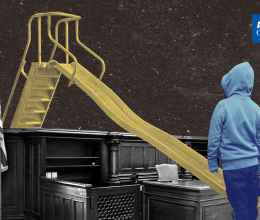COLUMBUS- The American Civil Liberties Union of Ohio will testify today on Ohio House Bill 473, which seeks to create a new criminal misdemeanor violation for sexting: when teenagers send or receive nude or partially nude images of other minors electronically. While there is no specific state law that criminalizes sexting, some county prosecutors around the state have attempted to charge young people with felonies under child pornography laws. A conviction under these statutes may include imprisonment, large fines, and sex offender registration requirements.
ACLU of Ohio Legislative Counsel Carrie Davis said, “Child pornography laws were enacted to protect children from dangerous predators, not criminalize them for poor judgment. While sexting needs to be addressed in our communities, harsh criminal penalties will only serve to stigmatize young people and make it more difficult to become productive adults.”
“House Bill 473 is well-meaning legislation, but it ultimately falls short. While teens should not be charged with draconian sex offenses for sexting, any attempt to criminalize this behavior is misguided,” Davis added. “Legislators must look beyond the courtroom and into our classrooms and living rooms if we hope to truly prevent sexting. Parents and educators should create open and honest dialogue around these issues and inform teens about issues like respect for their peers, privacy, and the responsibility of using electronic media.”
In April 2009, the ACLU sent letters to all county prosecutors and state legislators urging them to avoid criminalizing teens who sext. Additionally, the ACLU has advocated for victims of sexting to utilize the civil courts to pursue damages against those who distribute their images without their permission.
The testimony will take place at 3:00 p.m. on Tuesday, May 18, 2010 before the House Public Safety & Homeland Security Committee. HB 473 is sponsored by Rep. Connie Pillich (D-Montgomery). The ACLU of Ohio will testify as an interested party.
“Teens who sext can be shielded from prosecution under child pornography laws without weakening our ability to punish adults who prey on children,” concluded Davis. “By seeking solutions outside of the criminal justice system, legislators will be better able to prevent sexting in the future and not just penalize those who have already showed poor judgment.”





